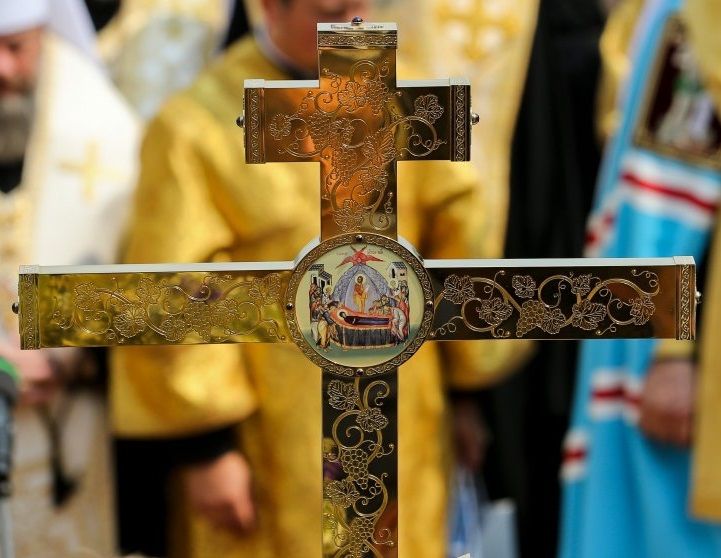
A unification council is scheduled to gather on November 22 to announce the creation of a local independent Orthodox church in Ukraine.
"We are in transition. The Moscow Patriarchate has made its mind both in general and in Ukraine. It is worth waiting. They promise to hold a unification council on November 22," former press secretary of the head of the Ukrainian Orthodox Church of the Moscow Patriarchate, Archpriest Georgy Kovalenko told Radio Liberty's Ukrainian service.
"According to the church's rules and traditions, any decision of the hierarchy should be accepted or not accepted, including by the clergy and members of the church," Kovalenko said.
Read alsoDetails revealed of Poroshenko's meeting with Moscow Patriarchate's hierarchs
He says he is confident that all local churches will try to do everything so that this conflict does not grow to the global level, therefore, they will maintain relations with both Moscow and Constantinople, simultaneously trying to resolve their own issues rather than blocking or helping those involved in the process.
Following the Holy Synod of the Ecumenical Patriarchate of Constantinople October 11, it was announced that the procedure of granting Ukraine autocephaly would continue.
Ukrainian President Petro Poroshenko emphasizes that the process of creating an autocephalous (independent) church is being finalized, all conditions have been created for preparing for a local council, so that the tomos, a document granting autocephaly to the local Orthodox church in Ukraine, could be provided in accordance with the canons of the church.
The Russian-backed clergy said their church would not take part in the creation of the local autocephalous church in Ukraine. They also declared they were going to sever Eucharistic communion with Constantinople.
The Ukrainian Orthodox Church of the Kyiv Patriarchate under Patriarch Filaret is leading a drive to establish a national church independent of the Russian Orthodox Church in the face of strong opposition from Moscow. The Ukrainian church split from its Russian parent following the Soviet Union's collapse in 1991, but Filaret has stepped up his drive for an independent national church since Russia's annexation of Crimea in 2014 and the outbreak of a Kremlin-backed separatist insurgency in the eastern Donbas region.
The row in Orthodox Christianity has deepened with the Russian Church saying it will no longer take part in structures chaired by the Ecumenical Patriarchate, the global spiritual leadership of Orthodox Christians, whose backing the Ukrainians are seeking for their independence bid.
The Eastern Orthodox Church is the second largest Christian denomination worldwide with more than 250 million members. But unlike the Roman Catholic Church it has no supreme leader comparable to the Pope but instead is composed mainly of de facto national churches, each led by a patriarch.

